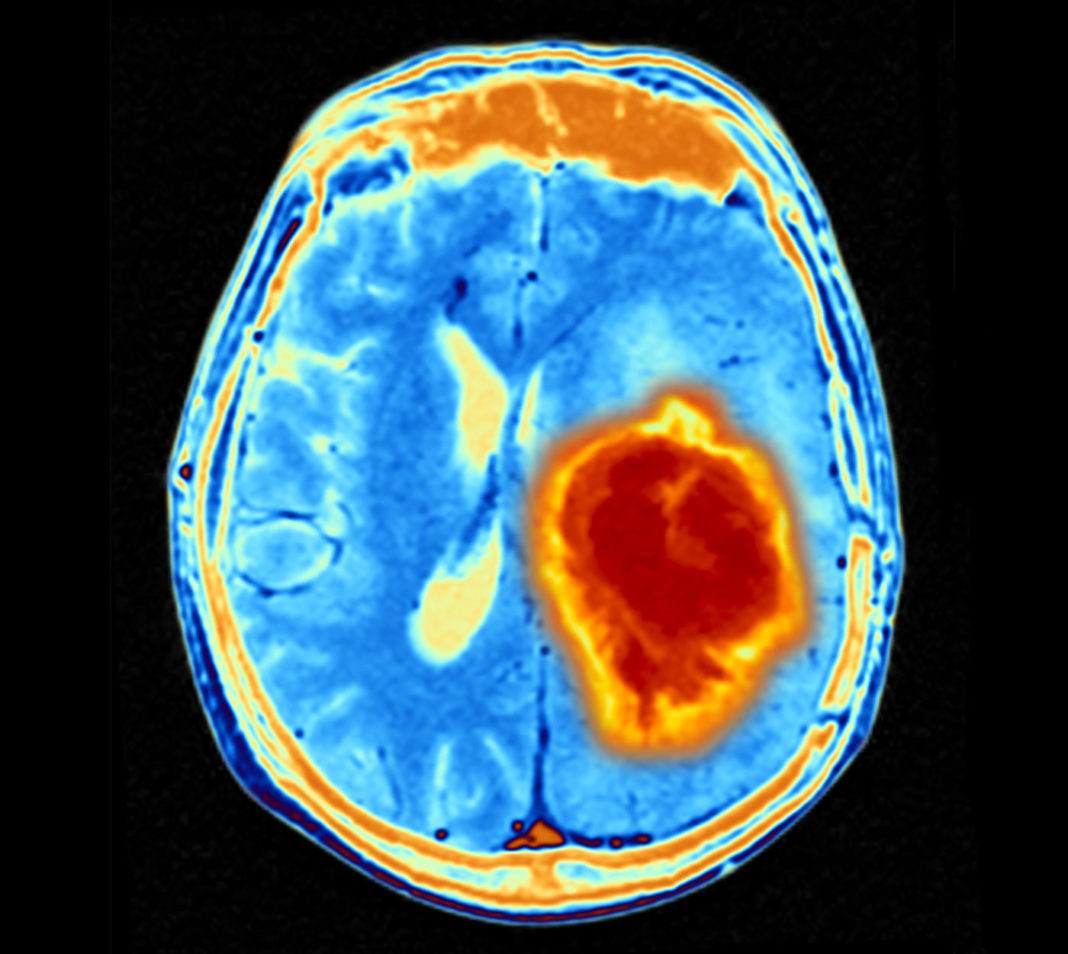Glioblastoma (GBM) is one of the most aggressive and lethal forms of primary brain and central nervous system (CNS) tumors. Following surgery to remove the tumor, glioblastoma patients are typically treated with radiation and the chemotherapeutic drug, temozolomide (TMZ). Although patients initially respond well to the drug, the cancer cells quickly develop resistance to this treatment. The major mechanisms of resistance of GBM to alkylating chemotherapy such as TMZ revolve around DNA repair, cell cycle progression, and anti-apoptosis. Now, researchers at the University of Sussex have discovered that an understudied protein called PANK4 acts as an obstacle that blocks cancer cells from responding to chemotherapeutic treatment for glioblastoma. Their findings may lead to new studies that further research PANK4 and the development of a potential drug to reverse chemo-resistance and improve outlook for patients.
The study was published in Advanced Science in an article titled, “Kinome-Wide Synthetic Lethal Screen Identifies PANK4 as a Modulator of Temozolomide Resistance in Glioblastoma.”
“TMZ represents the cornerstone of therapy for GBM. However, acquisition of resistance limits its therapeutic potential,” wrote the researchers. “The human kinome is an undisputable source of druggable targets, still, current knowledge remains confined to a limited fraction of it, with a multitude of under-investigated proteins yet to be characterized. Here, following a kinome-wide RNAi screen, pantothenate kinase 4 (PANK4) is uncovered as a modulator of TMZ resistance in GBM.”
“Glioblastoma is a devastating brain cancer, and researchers are working hard to identify ways to delay progression of the disease, and tackle cell resistance to treatment,” explained Georgios Giamas, PhD, professor of cancer cell signaling at the University of Sussex. “As this is the first time that PANK4 has been linked to glioblastoma, the next step is to develop a drug targeting this protein to try to reverse chemo-resistance and restore sensitivity, ensuring that patients receive the best treatment and have better outcomes.”
The University of Sussex researchers led an international research team to understand the possible reasons for this resistance, helping to guide future therapies to improve quality of life and increase life expectancy for those with glioblastoma.
The team identified a protein called PANK4 which, when removed from the cancer cells, can lead to the cell’s death, and saw patients better responding to temozolomide.
Linked to this, the researchers found that patients expressing high levels of the PANK4 protein had lower survival rates.
Viviana Vella, PhD, research fellow at the University of Sussex added, “There are a multitude of under-investigated proteins that may hold great potential for therapeutic intervention. Our study sheds light on this understudied protein, PANK4, unveiling a protective role in temozolomide-resistant cancer cells. Ultimately, PANK4 depletion represents a vulnerability that can now be exploited to restore sensitivity to the drug and improve treatment.”


